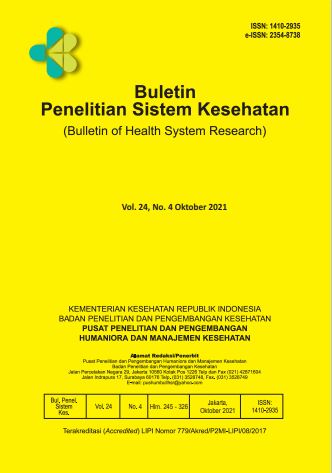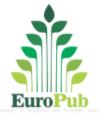Analisis Kualitatif Peran Ibu Terhadap Pencegahan COVID-19 Dan Pemberian Gizi Pada Masa Pandemi
(Studi Kasus Di Kota Medan Dan Kota Sibolga)
Abstract
More than two million children suffer from malnutrition and more than 7 million children under the age of 5 suffer from stunted growth. Nutritional status is important as it is a risk factor for morbidity and mortality. The role of mothers is required to monitor the nutritional status of young children during the COVID-19 pandemic. This study aims to determine the role of mothers in monitoring the nutritional status of young children during the COVID-19 pandemic. In this study, a qualitative approach was used to describe maternal activities in monitoring infant nutritional status during the pandemic. Data collection was carried out through in-depth interviews using a questionnaire as an interview guide. The whistleblower research was conducted in Medan City with up to 4 people as an area with a high COVID-19 prevalence rate and with Sibolga City with up to 6 whistleblowers as a comparison city with a low COVID-19 prevalence in North Sumatra province. This study found that the whistleblowers still had not implemented the COVID-19 prevention protocol, e.g. B. by not cleaning items frequently touched with disinfectants because they did not have disinfectant, did not feel the need to be cleaned regularly and lacked knowledge. Most of the whistleblowers had given their young children balanced diets during the COVID-19 pandemic, but some of the whistleblowers found restrictions on eating vegetables and fruits.
Abstrak
Lebih dari dua juta anak menderita gizi buruk dan lebih dari 7 juta anak di bawah usia 5 tahun mengalami stunting. Status gizi penting karena merupakan salah satu faktor risiko terjadinya kesakitan dan kematian. Peran ibu dibutuhkan untuk memantau status gizi pada balita selama pandemi COVID-19. Penelitian ini bertujuan untuk mengetahui peran ibu terhadap pemantauan status gizi balita pada masa pandemi COVID-19. Pendekatan kualitatif digunakan pada penelitian ini untuk mendeskripsikan kegiatan yang dilakukan oleh ibu dalam pemantauan status gizi bayi pada masa pandemi. Pengumpulan data dilakukan dengan wawancara mendalam dengan menggunakan kuesioner sebagai panduan wawancara. Informan penelitian dilakukan pada Kota Medan sebanyak 4 orang sebagai daerah dengan tingkat penyebaran COVID-19 yang tinggi dan Kota Sibolga sebanyak 6 informan sebagai kota pembanding dengan penyebaran COVID-19 rendah di Provinsi Sumatera Utara. Penelitian ini menemukan bahwa informan masih belum menerapkan protokol pencegahan COVID-19 seperti tidak membersihkan barang-barang yang sering disentuh dengan disinfektan dikarenakan tidak punya disinfektan, tidak merasa perlu untuk dibersihkan secara berkala, dan kurangnya pengetahuan. Sebagian besar informan sudah memberi balita makanan gizi seimbang di masa pandemi COVID-19 tetapi ditemukan keterbatasan dalam konsumsi sayur dan buah pada beberapa informan.
References
Chandra, B. R., & Humaedi, S. (2020). Faktor-Faktor Yang Mempengaruhi Partisipasi Orang Tua Anak Dengan Stunting Dalam Pelayanan Posyandu Di Tengah Pandemi Covid19. Prosiding Penelitian Dan Pengabdian Kepada Masyarakat, 7(2), 444. https://doi.org/10.24198/jppm.v7i2.28870
Chen, X., Ran, L., Liu, Q., Hu, Q., Du, X., & Tan, X. (2020). Hand hygiene, mask-wearing behaviors and its associated factors during the COVID-19 epidemic: A cross-sectional study among primary school students in Wuhan, China. International Journal of Environmental Research and Public Health, 17(8). https://doi.org/10.3390/ijerph17082893
Cheng, V. C., Wong, S., Chuang, V. W., So, S. Y., Chen, J. H., Sridhar, S., To, K. K., Chan, J. F., Hung, I. F., Ho, P., & Yuen, K. (2020). The Role of Community-Wide Wearing of Face Mask For Control of Coronavirus Disease 2019 ( COVID-19 ) Epidemic Due to SARS-CoV2. Journal of Infection, 81(107–114).
Depkes RI. (2006). Pedoman Umum Pemberian Makanan Pendamping ASI (MPASI). Lokal Jakarta.
Dyah Putri, A. (2018). Fakultas Kedokteran Universitas Diponegoro Semarang , Indonesia.
Fentiana, N., Ginting, D., & Zuhairiah, Z. (2019). Ketahanan Pangan Rumah Tangga Balita 0-59 Bulan Di Desa Prioritas Stunting. Jurnal Kesehatan, 12(1), 24–29. https://doi.org/10.24252/kesehatan.v12i1.7847
Hunt, C. O., & Morawska, Z. (2020). Since January 2020 Elsevier has created a COVID-19 resource centre with free information in English and Mandarin on the novel coronavirus COVID- 19 . The COVID-19 resource centre is hosted on Elsevier Connect , the company ’ s public news and information website . Elsevier hereby grants permission to make all its COVID-19-related research that is available on the COVID-19 resource centre - including this research content - immediately available in PubMed Central and other publicly funded repositories , such as the WHO COVID database with rights for unrestricted research re-use and analyses in any form or by any means with acknowledgement of the original source . These permissions are granted for free by Elsevier for as long as the COVID-19 resource centre remains active . Review of Palaeobotany and Palynology Are your hands clean ? Pollen retention on the human hand after washing. January.
Ippolito, M., Vitale, F., Accurso, G., Iozzo, P., Gregoretti, C., Giarratano, A., & Cortegiani, A. (2020). Medical masks and Respirators for the Protection of Healthcare Workers from SARS-CoV-2 and other viruses. Pulmonology, 26(4), 204–212. https://doi.org/10.1016/j.pulmoe.2020.04.009
K., R., & W., M. (2005). Inter-hospital trials to determine minimal cleaning performance according to the guideline by DGKH, DGSV and AKI. Zentralsterilisation - Central Service, 13(2), 106–116.
Kemenkes RI. (2012). P e doman P e n ce gahan dan P e ng e ndalian Inf e k s i T ub e r kulo s i s Di F a s ilita s P e layanan K e s e hatan.
Kemenkes RI. (2017). Status Gizi Balita dan Interaksinya.
Kemenkes RI. (2018). Buletin Stunting. Kementerian Kesehatan RI, 301(5), 1163–1178.
Kementerian Kesehatan Republik Indonesia. (2020). Petunjuk Teknis Pelayanan Imunisasi Pada Masa Pandemi COVID-19. COVID-19 Kemenkes.
Kesehatan, B. P. dan P. (2018). Badan Penelitian dan Pengembangan Kesehatan.
Lantagne, D., Wolfe, M., Gallandat, K., & Opryszko, M. (2018). Determining the efficacy, safety and suitability of disinfectants to prevent emerging infectious disease transmission. Water (Switzerland), 10(10), 1–8. https://doi.org/10.3390/w10101397
Lepelletier, D., Grandbastien, B., Romano-Bertrand, S., Aho, S., Chidiac, C., Géhanno, J. F., & Chauvin, F. (2020). What face mask for what use in the context of the COVID-19 pandemic? The French guidelines. Journal of Hospital Infection, 105(3), 414–418. https://doi.org/10.1016/j.jhin.2020.04.036
Nantabah, Z. K., A, Z. A., & Laksono, A. D. (2019). Gambaran Akses Pelayanan Kesehatan pada Balita di Indonesia. Buletin Penelitian Sistem Kesehatan, 22(1), 54–61. https://doi.org/10.22435/hsr.v22i1.439
Purwanto, B., & Margarini, E. (2021). Kegiatan Posyandu di Masa Pandemi Covid. Kementrian Kesehatan.
Qolbi, P. A., Munawaroh, M., & Jayatmi, I. (2020). Hubungan Status Gizi Pola Makan dan Peran Keluarga terhadap. 167–175.
Riadi, A. (2019). Pedoman dan Pencegahan Coronavirus (COVID- 19). Math Didactic: Jurnal Pendidikan Matematika, 4, 1–214. https://doi.org/10.33654/math.v4i0.299
Singhal, T. (2020). Review on COVID19 disease so far. The Indian Journal of Pediatrics, 87(April), 281–286.
Sugiyono. (2013). Metode Penelitian Pendidikan Pendekatan Kuantitatif, Kualitatif.
Suppawittaya, P., Yiemphat, P., & Yasri, P. (2020). Effects of Social Distancing , Self-Quarantine and Self-Isolation during the COVID-19 Pandemic on People ’ s Well -Being , and How to Cope with It. International Journal of Science and Healthcare Research, 5(June), 12–20.
WHO. (2007). Pandemic-Prone Acute Respiratory Diseases. Oms.
Wiresti, R. D. (2020). Analisis Dampak Work From Home pada Anak Usia Dini di Masa Pandemi COVID-19. Jurnal Obsesi : Jurnal Pendidikan Anak Usia Dini, 5(1), 641. https://doi.org/10.31004/obsesi.v5i1.563
World Health Organization. (2020a). Coronavirus Disease (COVID-19) Situation Report. World Health Organization.
World Health Organization. (2020b). Hand Hygiene in Health Care First Global Patient Safety Challenge Clean Care is Safer Care. In World Health Organization.
Copyright (c) 2022 Buletin Penelitian Sistem Kesehatan

This work is licensed under a Creative Commons Attribution-ShareAlike 4.0 International License.


















